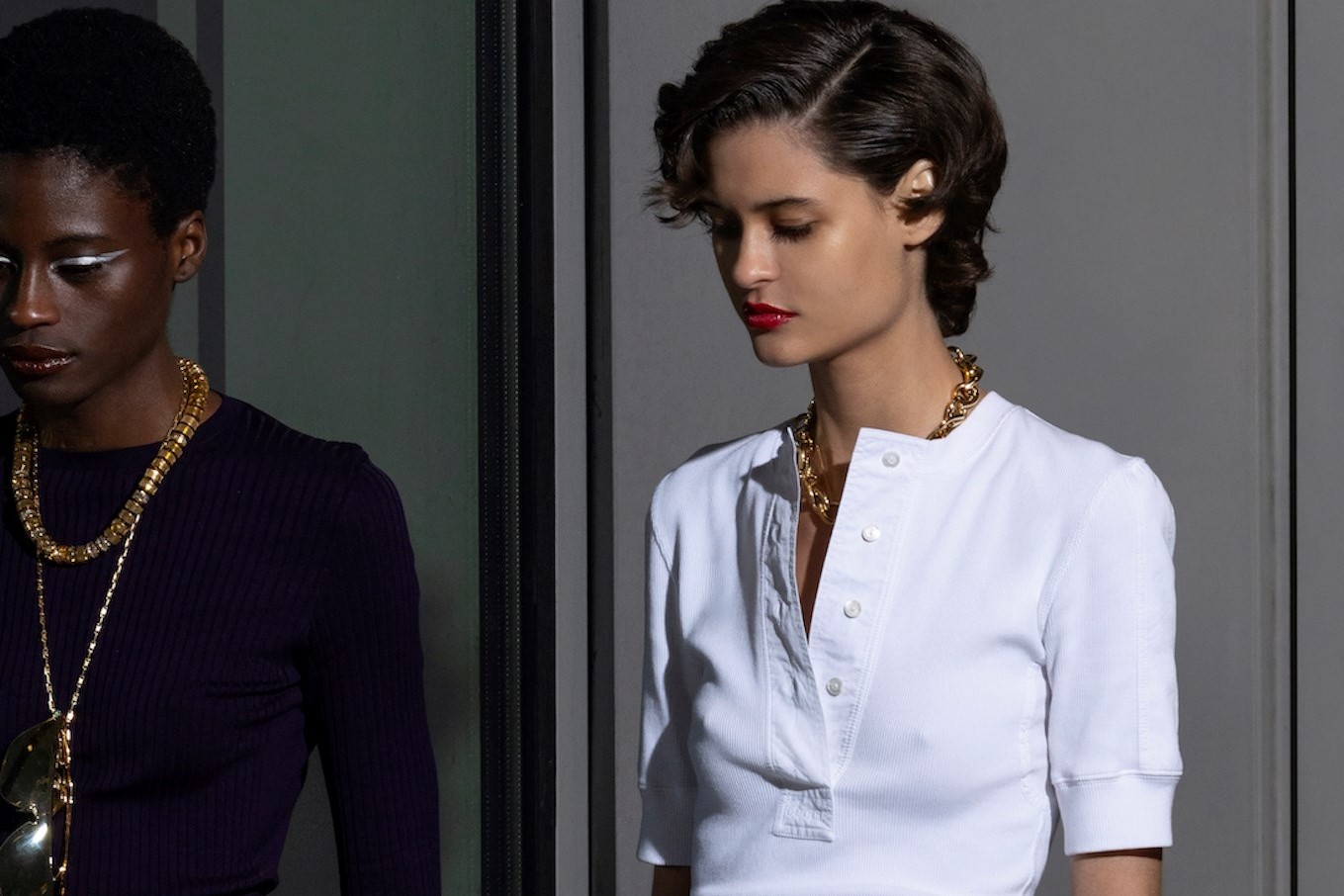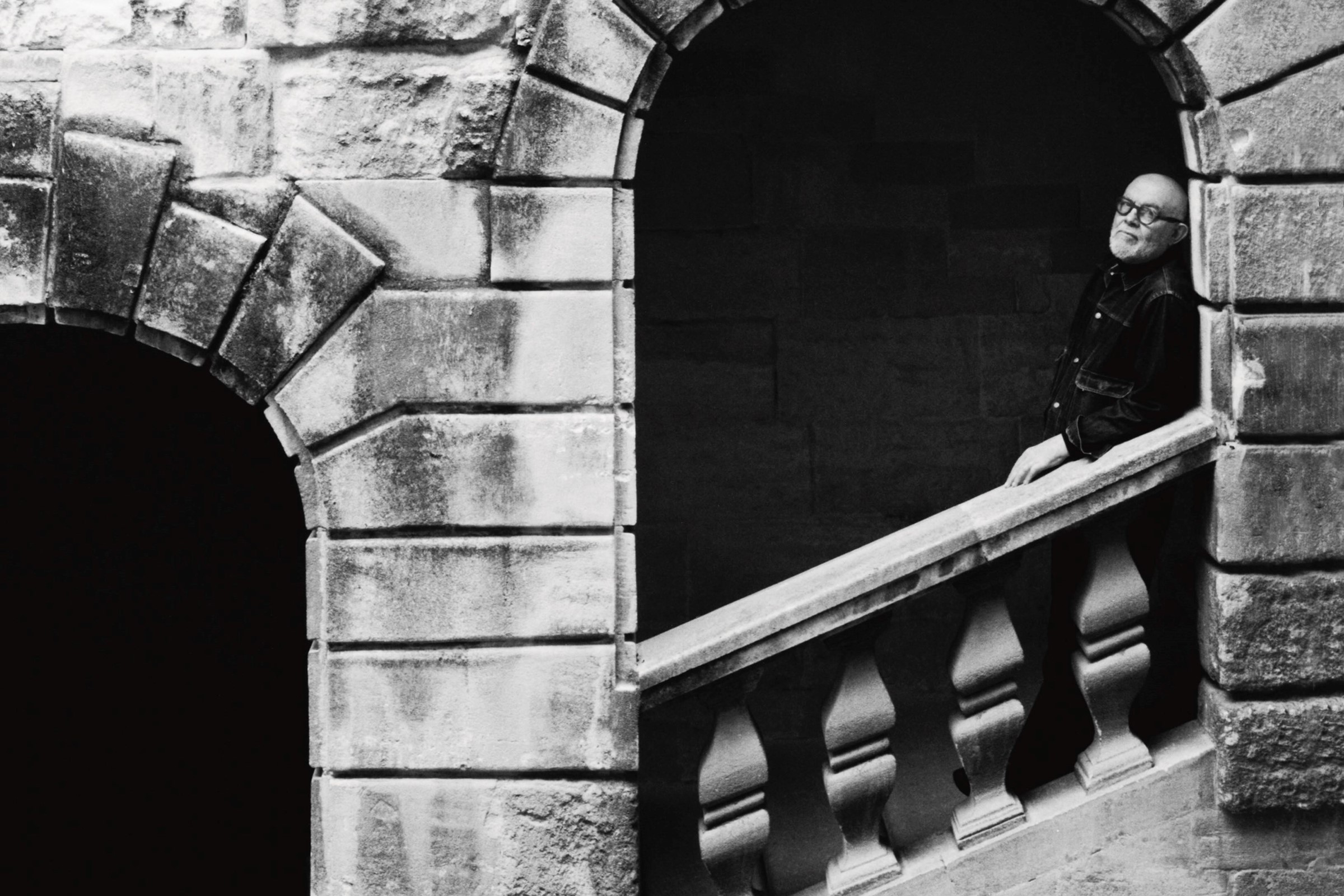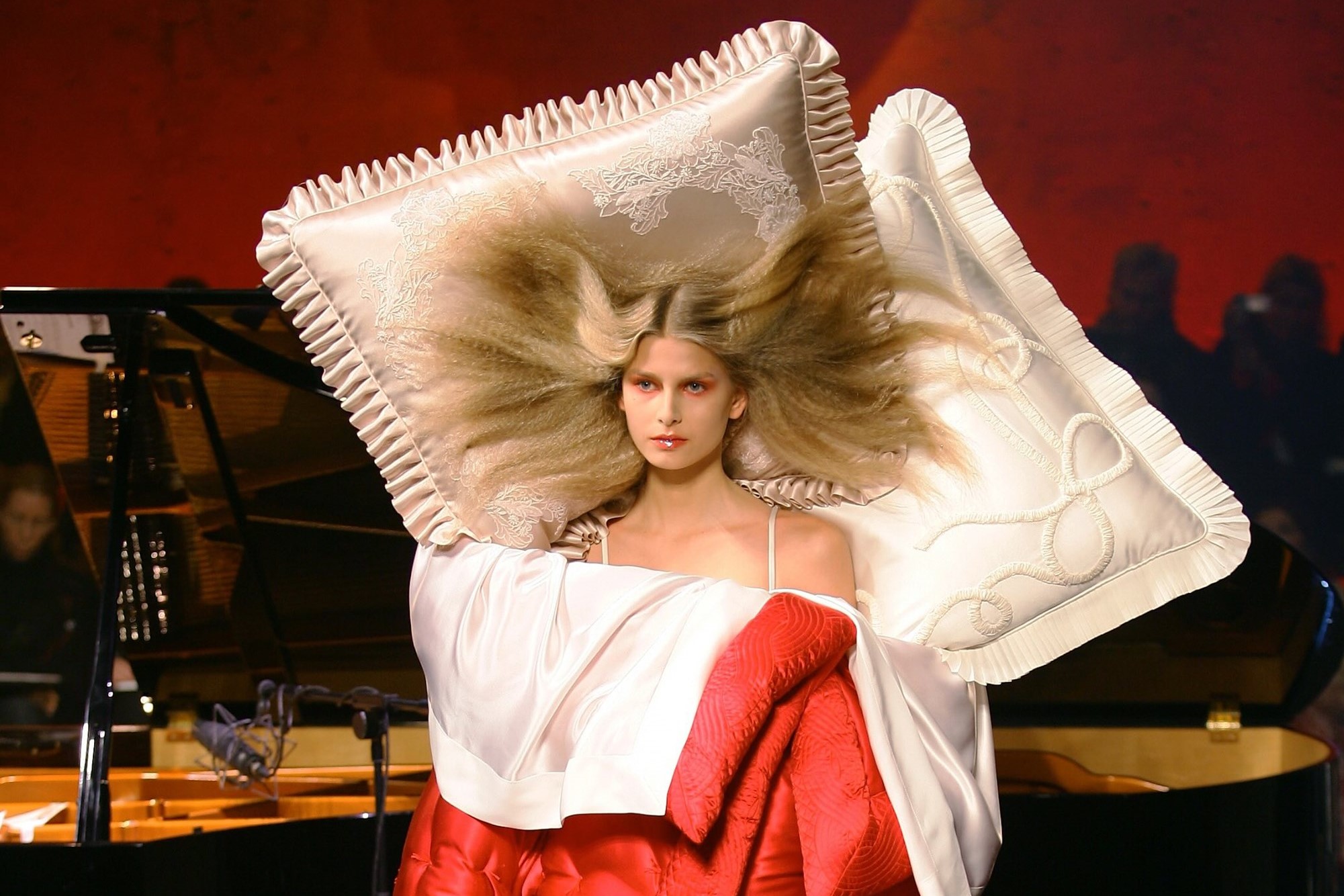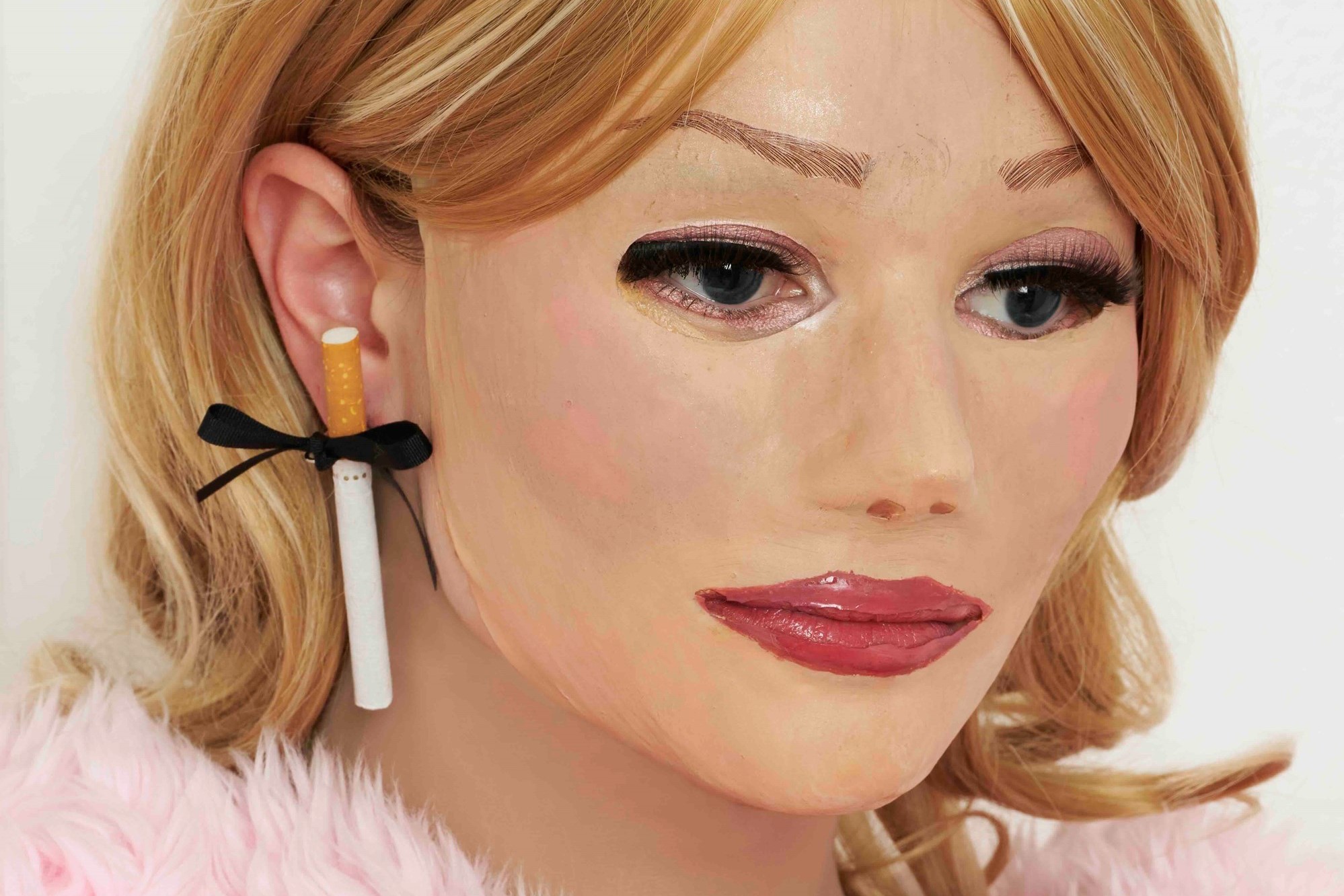An Intellectual Fashion meets Italian-born artist Francesco Vezzoli
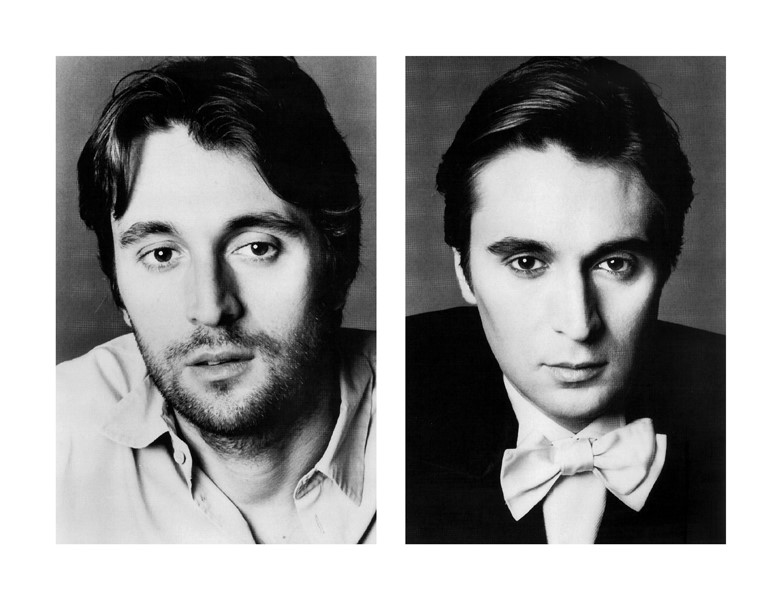
Organised around a regular pattern: in this column each interviewee picks the picture that illustrates their interview, answers six questions that are the same for all contributors and then two more that are designed specifically for them.
Italian-born artist Francesco Vezzoli is fascinated by the role of cultural icons in the popular psyche, of the workings of fame, power and talent. Since graduating from Central St. Martin's School of Art in 1995, he has created a wide range of titillating works including serigraphs with areas of hand-stitched embroidery, film, photography and live performance. Vezzoli regularly invites a variety of creatives to participate in his works such as Cate Blanchett, Natalie Portman, Eva Mendes, Lady Gaga and Miuccia Prada who designed Bloshoi dance costumes for his Ballets Russes Italian Style (The Shortest Musical You Will Never See Again) at the Museum of Contemporary Art in Los Angeles in 2009. Vezzoli's inaugural New York solo show, Sacrilegio, opened at the Gagosian Gallery earlier this month.
How would you connect fashion to elegance?
I personally don’t. It’s like saying how do you connect cinema to intelligence? For me, contemporary art, fashion, cinema are creative disciplines that all have equal relevance and status; they are all industries with mainstream producers, mainstream galleries, mainstream fashion houses, independent designers and independent film directors. The word 'fashion' implies a huge universal creativity. The people who use fashion with intelligence may become elegant. But somebody can be perfectly elegant without thinking about fashion.
What is the role of history and art history in your conception of fashion?
I would insist on this concept: what is the role of history of fashion, for fashion? The problem, in intellectual terms, would be to always imagine that the history of other creative disciplines have an impact on fashion. At this stage in history, fashion has enough of a history for itself. A fashion designer should always consider their own heritage. They can enjoy cinema or contemporary art, but I think to be a great designer, one should know the history of their own discipline. It's not as simple as watching La Dolce Vita and creating clothes inspired by that glamorous period. The designer needs to be aware of other designers who have taken inspiration from the costumes, consider the relationship of the film's costume designers with the designers of the time, Fellini's inspiration and what the designs in Rome were at this time.
Would you describe fashion as a language and a discourse, as Barthes did it?
Yes, even more so. At this stage in history, I would describe it as a universe, as a creative industry. Barthes as a philosopher, as a writer, gave fashion the dignity of calling it a discourse. Today, I would define fashion as an enormously influential industry. Sometimes, when I think of myself as an artist, and I think of the artists of Arte Povera who blossomed in Turin in the late 60s and in the 70s, I notice that there is some resemblance to the industries and to the social-economical environment that connected the city in which these people lived. I am based in Milan which is very well connected, as is New York, Paris and London. Fashion is much more than a discourse; it’s a whole encyclopedia.
The word intellectual was coined in a time of great political distress. Does fashion have a political role? And in which way?
Fashion has a political role because it mirrors or it anticipates the necessities or the moves in different ways: it can be a way of expressing your political opposition. But there is more to it – fashion is now reaching a political power since the industry of glamour employs and influences so many individuals. The key leaders of the fashion industry influence the world with their choices – if a major player in the fashion industry decides to collect the works of an artist, the artist immediately gains a level of visibility and recognition. If a fashion leader decides to endorse a certain charity, immediately that charity has a prominence, gains attention and raises money. The potential political role is absolutely enormous.
What does fashion have to do with intellectuality?
This is an abstract question for me. It has to do with intellectuality as much as cinema, as much as contemporary art. Some film directors are very intellectual – they know the history of their discipline, they are fully concentrated on creating a personal point. Other directors filter their sensibility through a mass product; designers do the same. Some designers are very intellectual, some others, not at all.
Would you relate the idea of fashion to the one of style ?
No, I’m not into style. I don't know what style is. I don't know whether having a style means having 'style'.
You’re Italian, and famed for toying with the commonplaces linked to your nationality. Which part does fashion play in that?
Fashion plays an enormous role because I think my nation is ruled by a man not many people would want at their dinner table if he wasn’t the president. And, I believe, many of the industralists of pseudo-entrepreneurs who stay close to him would otherwise not be considered respectable or interesting. I think that is also the case in many other prominent institutions. There are a lot of people in my nation who do not have any form of international credibility, whereas all the people in the fashion industry – be it close friends or those that have a style that I subscribe to – have a great sense of international culture and business. I'm not sure if you can say the same for France but I'm under the impression those that run the fashion conglomerates in France have a broader cultural vision than the people who run other types of industries, however in Italy, I know many industrialists from other fields. Industrialists of fashion are more cultivated because their profession forces them to be culturally updated. The people of fashion are forced, not only to produce an aesthetic discourse that gets updated every six months, or every three months in some cases, but at the top of that they are forced to be in a philanthropic dialogue with many disciplines. Fashion as a form of culture, forces one to be global.
Your art is full of eroticism. How do you relate desire to fashion?
In a very personal way, if I knew that wearing something would make me more sexy, I would buy it right away, and wear it regardless, because it is nice to be desired. I am more attracted to people who are not 'well dressed'. Or, on the other hand, being obsessively well dressed (perhaps suggesting extreme care, intelligence and obsession) can also be equally arousing. Although, if you dress in a hyper-sophisticated way, it may turn out that you don’t look very sexy. I was recently at an exhibition at the LACMA, in Los Angeles featuring the most amazing collections of costumes from the French Revolution in the West Coast. If I would wear a waist-coat from the 18th century with a pair of jeans and a pair of Texan boots, and a Charvet pink shirt, I would think that would be extremely elegant, but it wouldn’t make me sexy to others. and I think the connection between elegance and eroticism is very complicated. I gave up being elegant – I wear up what hopefully gets me laid the most.
Sacrilegio by Francesco Vezzoli runs until 12 March at the Gagosian Gallery, New York
In two weeks Donatien will be interviewing the designer Vincent Darré
